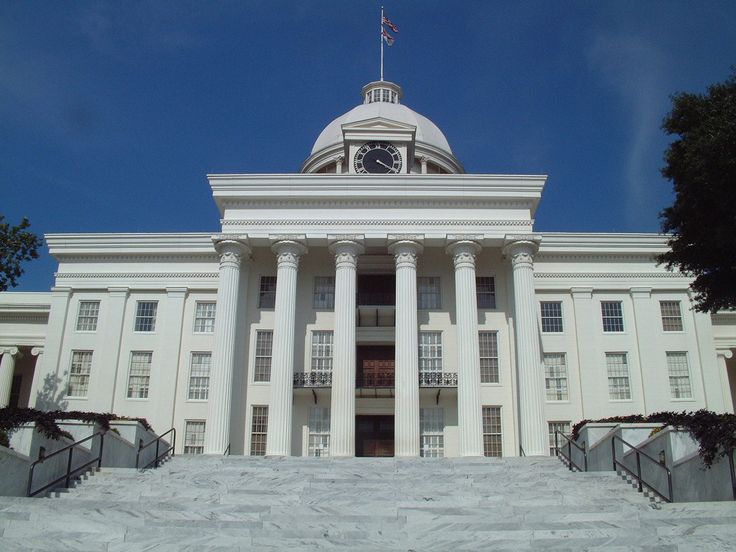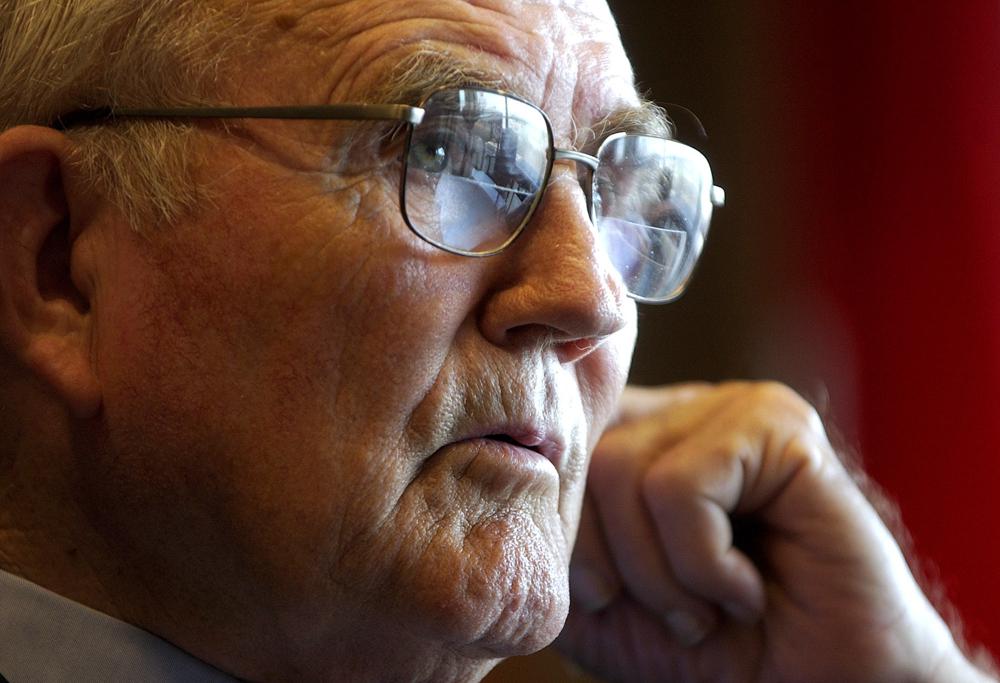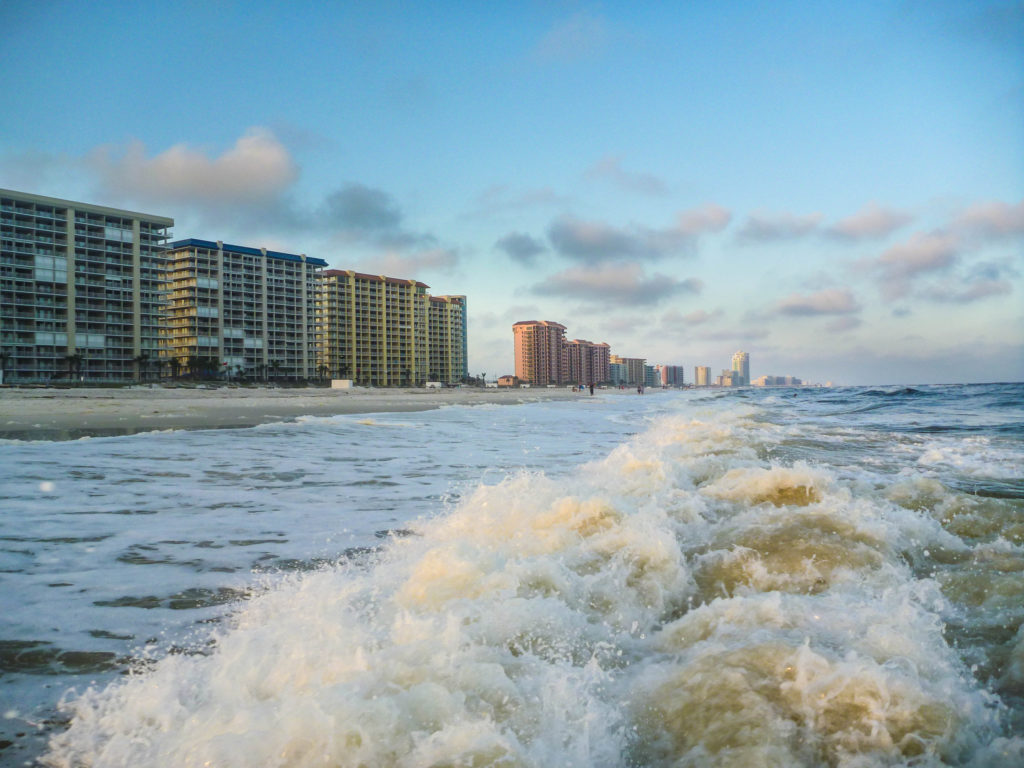32 Powerful and Influential Alabamians to know

It’s true, the words “powerful and influential” can be vague and subjective. However, it’s fair to say among the universally accepted definitions within politics and policy is an individual’s ability to create change, start a conversation, influence the public or public officials, move an agenda forward or stop one in its tracks. There’s no doubt that a good number of people are moving Alabama forward in politics and business. Recently, Yellowhammer published its 2021 annual list of who they consider the most influential and powerful. They noted it was a “Peek behind the curtain.” That it always is – a peek into the mind of the editorial team, writers, and friends of the site. With the same people on it year after year, often in the same companies and offices and the standard members of the legislature and statewide offices. Dozens of whom certainly would belong on any list of power or influence: Jo Bonner, Katie Britt, Bob Geddie, Dax Swatek. No one can deny the influence any of them have. Others on the list begged the question “Why?” while others were glaringly missing. This list purposely does not duplicate any name already appearing on that list. Not all influencers within the public arena are lobbyists or lawmakers. Some within the media or in advocacy organizations can shape or change public opinion. In addition, some influencers have the ability to position themselves, loved ones, or friends to the front of the line for coveted appointments or jobs. There’s so much to power and influence; while it may hard to describe, you know when you see it, and you know who lacks it. It could be argued that 1-5 are no brainers and would be list repeats, but heck, I say repeat them until it changes. So with that, let Alabama Today offer 32 additional notable people who were nominated by a ragtag group of incredibly biased judges. Did I mention how incredibly biased we are? This, combined with the YH list, might give one a better view of the movers and shakers with power and influence in the state’s political world. Worth noting, some of them are the bosses, mentors, elders statesman, and wise counsel of many on the YH list, while a couple of others are up and comers. Jimmy “Yellow Fella” Rane, President/CEO at Great Southern Wood Preserving Not only is the Yellow Fella the wealthiest man in Alabama and Board of Trustee at Auburn, but there’s also no doubt he’s used his financial success to the betterment of the state, giving him great power and influence. His contributions are well documented, politically, economically, and through philanthropy. From 2013 to May 2021, his company has given 178 contributions totaling $2,079,316.40. He also has the Jimmy Rane Foundation, which has more than doubled his political donations with $4.7 million in scholarships. His influence is undeniable and unmatched, which is why he is number one on our list. Mark Crosswhite, CEO Alabama Power Crosswhite’s voice carries a lot of weight, so much so that multiple people on the YH list answer to him in one way or another. Which begs the question, how can anyone deny his place on any list of power and influence? He chaired the BCA board during a critical time when the organization’s future was in peril, saving a key organization critical to the state’s business development, growth and success, and ensuring a better economic future for the state. As the organization continues to grow and evolve, there’s no doubt he’s still helping steer the ship. 3. Fess St. John IV, Chancellor of The University of Alabama System Finis “Fess” St. John IV comes from a storied line of Alabama influencers, including his father and grandfather. He’s currently the Chancellor of The University of Alabama (UA) System. Which makes him the chief executive officer of Alabama’s largest employer with multiple school campuses and a massive healthcare system. According to the school’s website, “Total enrollment in the UA System achieved a new record this fall, with more than 70,400 students enrolled at UA, UAB, and UAH. The System’s annual economic impact surpasses $10 billion annually, and upwards of 1.7 million patients are served every year in the System’s hospitals and clinics.” 4. Chris England, House of Representatives, District 70 While many have tried over the last couple of decades, England was able to stop the further deterioration of the Democrat party (with a reputation that was nationally marred by chaos, a lack of structure, oh, and that one toilet story) and begin its rebuilding. One long-time democrat described the infrastructure as stronger now than it has been since the days of Bill Baxley. England is a graduate of Howard University and the University of Alabama School of Law. His father grew up in Circuit Court Judge John H. England Jr., who served as a justice on the Alabama Supreme Court in 1999-2000. To leave him off the Top 5 of any influential list is to deny reality. 5. Stephanie Bryan, Tribal Chair and CEO for the Poarch Creek Indians No one should question the top female on this list. It’s no coincidence that she heads one of the biggest political powerhouses in the state of Alabama. PCI has capitalized on the shift in public attitudes towards a more tolerant attitude towards gaming and lottery to push for changes in the law that would allow their tribe’s operations to grow. This session’s gaming proposal wasn’t successful, but it got further than expected and may come up again in a special session. She is a political player that many say could be the most powerful over the next couple of campaign cycles. 6. Tom Coker, The Southern Group Rare can someone survive with the longevity and respectability of Tom Coker. His strength is the state senate, but he can get things done. His firm’s website names him as President of Tom Coker & Associates since 1982. Tom Coker offers a full range of governmental
Federal court challenge looms over Alabama solar panel fees

A federal regulatory group will not take action against the Alabama Public Service Commission over fees allowed on home solar panels, but the group’s chairman expressed concern that the state might be violating a federal law designed to encourage alternative energy sources. The Federal Energy Regulatory Commission rejected a request from environmental groups to take enforcement action against the Alabama regulators that approved Alabama Power’s fees on home solar panels and other home power generation. However, two members of the five-member panel, Commission Chairman Richard Glick and Commissioner Allison Clements, issued a separate statement Wednesday to express concern that Alabama regulators may be violating federal policies designed to encourage the development of cogeneration and small power production facilities and to reduce the demand for fossil fuels. Their statement expresses a concern “that the Alabama Public Service Commission may be violating the Commission’s (Public Utility Regulatory Policies Act or PURPA) regulations, undermining the statute’s purpose of encouraging qualifying facilities.” Alabama environmental groups said Thursday that they are prepared to pursue action in court. Homeowners and environmental groups have been trying to challenge Alabama Power’s fees on home solar panels and other independent energy production, arguing that the fees purposely discourage the use of solar in the sun-rich state. “We are now prepared to take the next step of seeking relief from a federal district court so that Alabama Power customers can finally reap the benefits of solar to the same degree as customers in other solar-rich states,” said Keith Johnston, director of Southern Environmental Law Center’s Alabama office. Michael Hansen, executive director of the environmental group GASP, said Alabama’s unjust, discriminatory treatment of solar customers is stifling solar growth across the state and undermining PURPA’s basic aim of encouraging the development of solar. The Alabama Public Service Commission upheld the fees, which Alabama Power says are needed to maintain the infrastructure that provides backup power to customers when solar panels don’t provide enough energy. Alabama Power charges a $5.41-per-kilowatt fee, based on the capacity of the home system, on people who use solar panels, or other means, to generate part of their own electricity. That amounts to a $27 monthly fee on a typical 5-kilowatt system. The average solar panel setup for a home costs about $10,000, according to the Environmental Law Center. The fees add another $9,000 or so over the 30-year-lifespan of a system, dramatically increasing a homeowner’s cost and reducing any financial benefit they see from solar. Alabama Power did not immediately respond to an email seeking comment, but a spokeswoman said earlier this year that the fees are needed to maintain the power grid. “Customers with on-site generation who want backup service from the grid should pay the cost for that service. If not, other customers unfairly pay the costs for those individuals and businesses,” Alabama Power spokeswoman Alyson Tucker said in April. Experts for environmental groups said the charge is unjust and eliminates much of the savings that customers expect to realize for their investments in installing solar panels. Republished with the permission of the Associated Press.
Segregationist former Alabama Gov. John Patterson dies at 99

Former Alabama Gov. John Patterson, who entered politics as a reformer after his father’s assassination but was criticized for failing to protect the Freedom Riders from angry white mobs, has died. He was 99. He died Friday, his daughter, Barbara Patterson Scholl, confirmed. She said funeral arrangements are pending. “He died very peacefully at home. His family and friends were with him,” she said. Patterson’s involvement with state government spanned a half-century, beginning with his election as attorney general at 33 after violence in Phenix City, and later as a judge. A segregationist as governor, he drew criticism when Freedom Riders were attacked while in Alabama and Patterson did nothing to protect them. He later voiced regret for what happened. He ended his political career more serenely on the Court of Criminal Appeals, where he continued to write opinions into his 80s. Patterson also was involved in the disastrous Bay of Pigs invasion, helping the CIA get Alabama Air National Guard members to train Cuban exiles. Some Alabama pilots died when the 1961 invasion of Cuba failed. Patterson was born on his grandparents’ farm in the tiny Tallapoosa County community of Goldville but finished high school in Phenix City, where his father, Albert Patterson, was a lawyer. After serving on Gen. Dwight Eisenhower’s staff during World War II, Patterson returned home, got his law degree from the University of Alabama, and went into practice with his father, Albert Patterson. Albert Patterson ran for attorney general in 1954 on a platform of cleaning up the vice and illegal gambling that had turned his town into “Sin City, U.S.A.” He won the Democratic nomination to be the state’s top prosecutor but was gunned down in Phenix City on June 18. Democratic Party officials pressured his son to run for attorney general in his place. He did and won. In a 2003 interview, Patterson told The Associated Press he had no interest in politics until his father’s death. “If he hadn’t been killed, I never would have run for public office. Nobody would have ever heard of me outside legal circles,” Patterson said. As attorney general, Patterson kept his father’s campaign promise to clean up Phenix City. He also fought civil rights groups in court. In one case, he got a restraining order to keep the NAACP from operating in Alabama. The restraining order remained until 1964 when it was lifted by the U.S. Supreme Court. Patterson ran for governor in 1958, beating George Wallace in a Democratic primary that focused largely on Patterson’s pro-segregation stand. Patterson was the only person to beat Wallace in an Alabama election. Four years later, Wallace successfully claimed the segregationist banner to begin his dynasty. During Patterson’s term, Alabama launched a $100 million school building program, increased old-age pensions, returned the State Docks to profitability, and enacted a small loan law to curb loan sharks. But his term also saw attacks on the Freedom Riders who were seeking to integrate bus waiting rooms and lunch counters. Patterson said later he mistakenly trusted police in Birmingham and Montgomery to protect the Freedom Riders, but they didn’t. “I regret it, and it was bad for my administration,” Patterson said in 2003. Patterson said he knew segregation couldn’t be maintained under the Constitution, but he wanted to delay its end. He said he felt Alabamians would accept integration without violence if change occurred slowly. Exactly 50 years after the Freedom Riders were beaten by a white mob in Montgomery, Patterson welcomed 10 of them back to Montgomery on May 20, 2011, for the dedication of a museum honoring them. “It took a lot of nerve and guts to do what they did,” Patterson said. In a 2009 interview, Sam Webb, co-editor of the book “Alabama Governors,” said Patterson was “a brave and courageous” governor on many fronts, but those accomplishments were overshadowed by race issues. “Unfortunately what will stand out in John Patterson’s case is his vociferous opposition to civil rights and racial integration,” said Webb, a historian at the University of Alabama at Birmingham. During Patterson’s term as governor, the CIA began planning for Cuban exiles to invade Cuba and try to overthrow Fidel Castro. A CIA agent approached Patterson about getting members of the Alabama Air National Guard to help train the exiles. Patterson agreed after the agent assured him that President Eisenhower had approved the plan. About 300 Alabamians helped train Cuban exiles for the Bay of Pigs invasion, which was not carried out until President John Kennedy replaced Eisenhower in the White House in 1961. On the third day of the invasion, as it was failing, Alabama pilots flew the last bombing mission, and four died. Kennedy initially denied any U.S. involvement in the invasion, which was a shock to Patterson, who knew differently. Years later, Patterson disclosed that he had tipped off Kennedy about the invasion plans shortly before the November 1960 presidential election. Patterson, a Kennedy supporter, flew to New York to tell Kennedy out of concern that the Eisenhower administration would carry out the invasion just before the presidential election to boost Vice President Richard Nixon’s chances of beating Kennedy. Patterson couldn’t seek a second term in 1962 because Alabama law then prohibited consecutive terms. He tried a comeback in 1966, but lost to Wallace’s wife, Lurleen Wallace. He also ran unsuccessfully for chief justice of the Alabama Supreme Court in 1972. Patterson, who had been friends with Wallace before their bitter 1958 race, eventually renewed the friendship and helped Wallace in his later campaigns for president and governor. In 1984, Wallace appointed Patterson to a vacancy on the Alabama Court of Criminal Appeals. He won election to a full six-year term later that year and was reelected in 1990. In January 1997, he had to retire because the state constitution prohibits judges from running for another term after reaching 70. Still, Patterson continued to work for the court by helping write opinions because he said he enjoyed being a judge more
Tourism surge meets worker shortages at Alabama beaches

Alabama’s Gulf Coast beaches are seeing a surge of tourists that, for some businesses, could prove to be their busiest June ever. And with the extra hotel and condo bookings, tourism officials are seeing more traffic, longer waits for tables at restaurants, even sometimes bigger lines at grocery stores as businesses grapple with a worker shortage as the economy emerges from the coronavirus pandemic. In an effort to ask visitors to pack some extra patience along with their swimsuits and sunscreens, Alabama tourism officials launched a summer marketing campaign around the slogan “Worth the Wait.” “With staffing shortages happening nationwide, especially in the tourism industry, we want to help guests understand what to expect or anticipate in our destination,” Kay Maghan, a spokeswoman for Gulf Shores & Orange Beach Tourism, told al.com. During the Memorial Day weekend at the end of May, Gulf Shores and Orange Beach reported vacation rental occupancy near 85% — eclipsing previous high marks in 2019 and last year, when a flood of visitors arrived soon after Alabama beaches reopened during the pandemic. Tourism officials also noted Interstate 10 and other major routes to the beaches saw heavier traffic than normal during the holiday weekend that marks an unofficial kickoff of the summer season. “The entire state tourism industry experienced a great launch during the holiday weekend,” said Lee Sentell, director of the Alabama Tourism Department. The company Brett Robinson Rentals manages 1,700 rental units on Alabama beaches, and it reported bookings were near 100% for the Memorial Day weekend. Spokesman Robert Kennedy Jr. said the company is anticipating “what is maybe our best June ever.” “There is still occupancy available,” Kennedy said. “But it will have a tendency to be midweek. The weekends are pretty much booked through the Fourth of July weekend, but we have availability.” Meanwhile, many businesses are scrambling to hire enough workers for the busy season amid a national labor shortage, particularly in service industry jobs with lower wages. At the Flora-Bama, a popular beachfront roadhouse at the Florida-Alabama line, the owners are still struggling to hire people despite offering a $500 bonus. Jenifer Parnell, a Flora-Bama spokeswoman, said sales and traffic were up during the Memorial Day holiday while staffing remained “extremely difficult.” “Some people trickle in to apply,” Parnell said, noting the bonuses have helped, “but we definitely need more.” Republished with the permission of the Associated Press.


